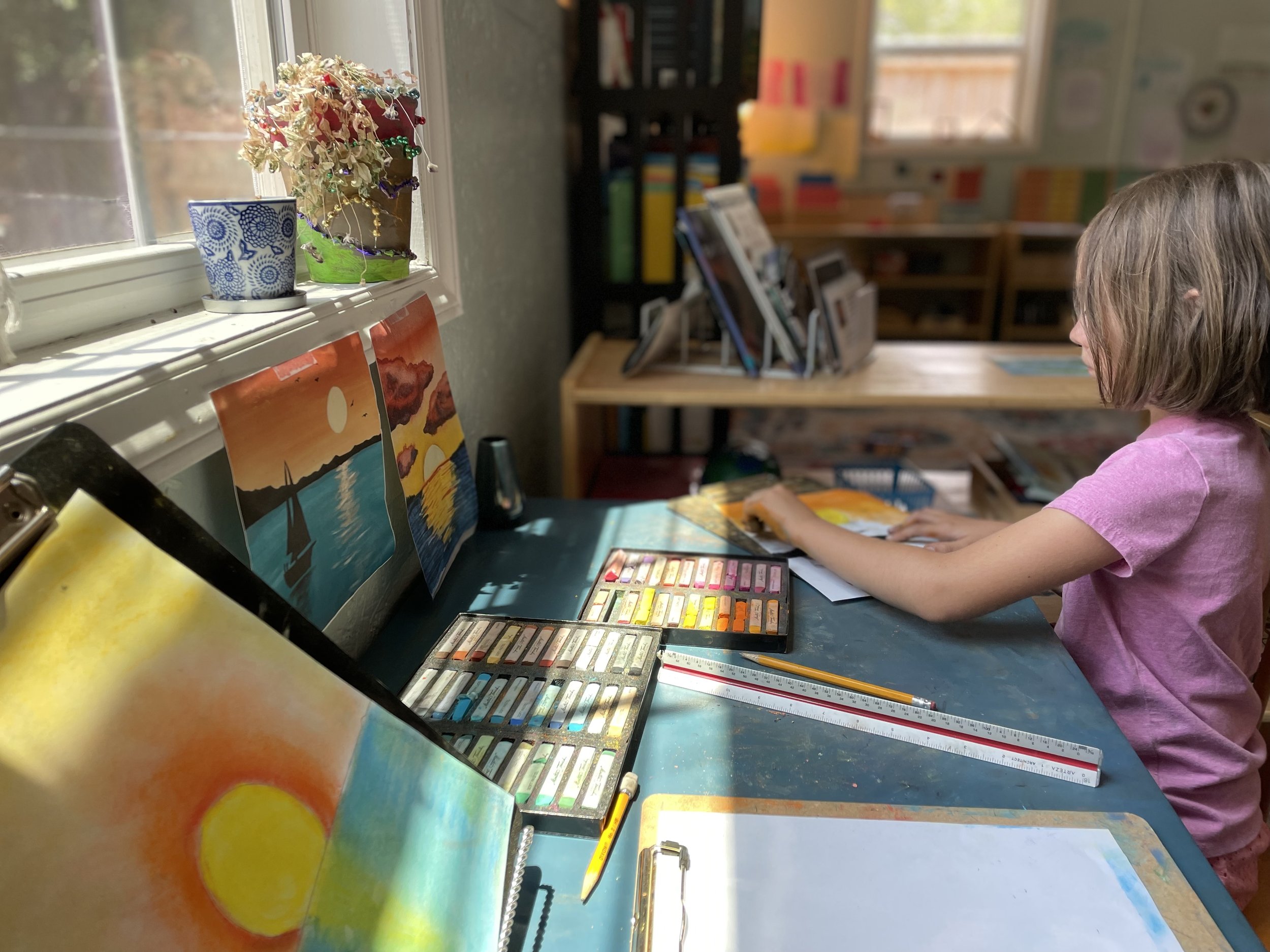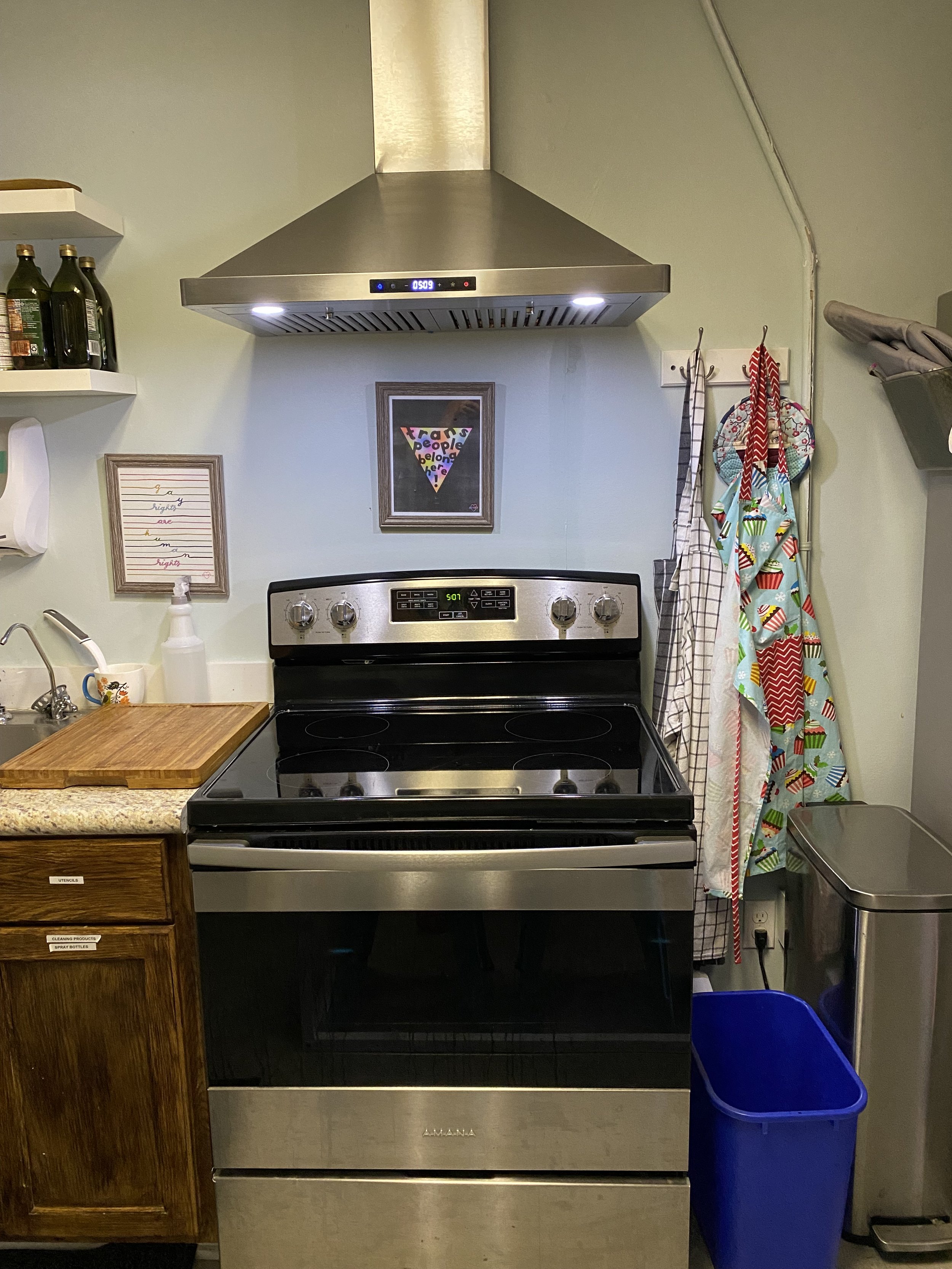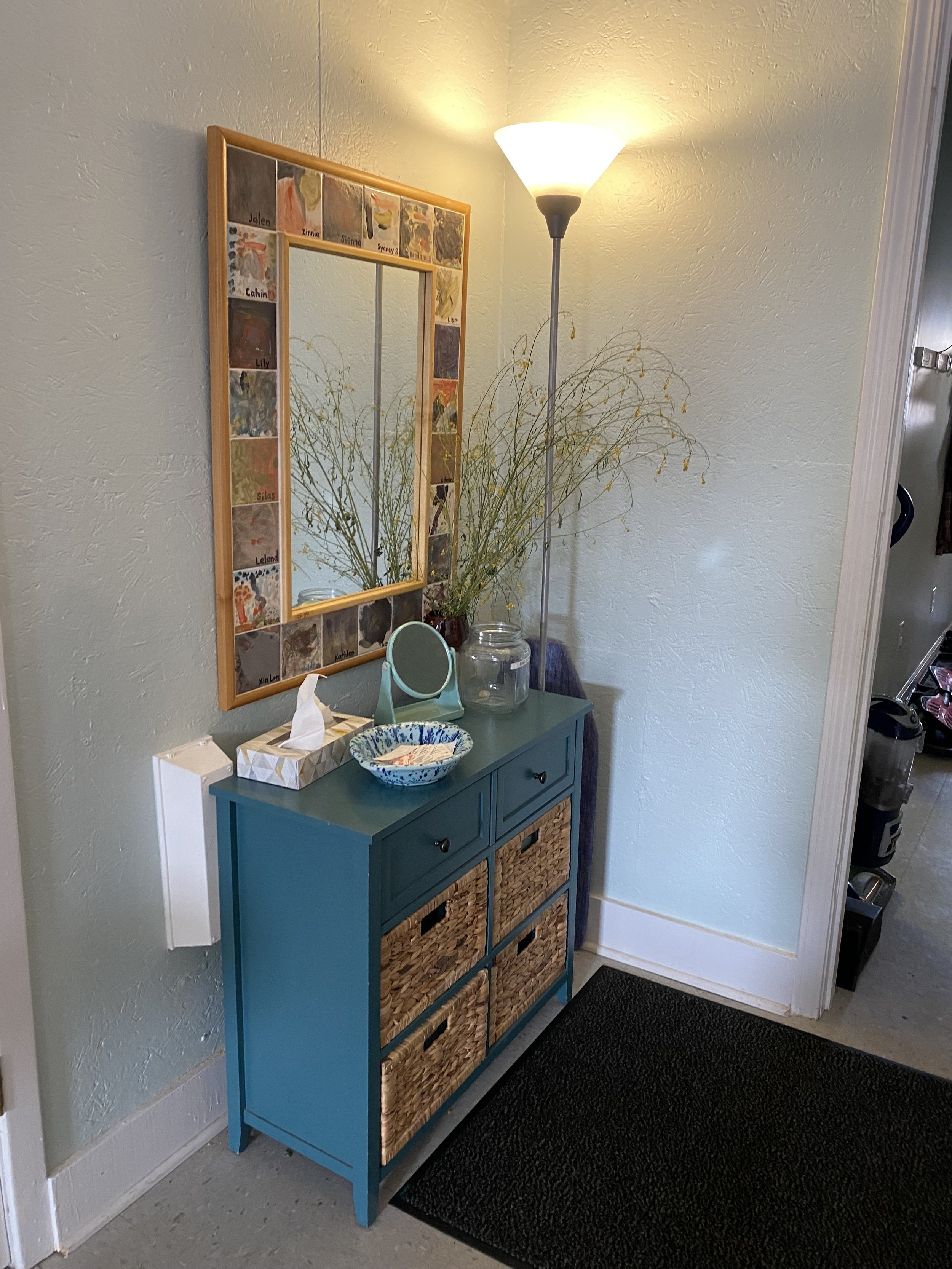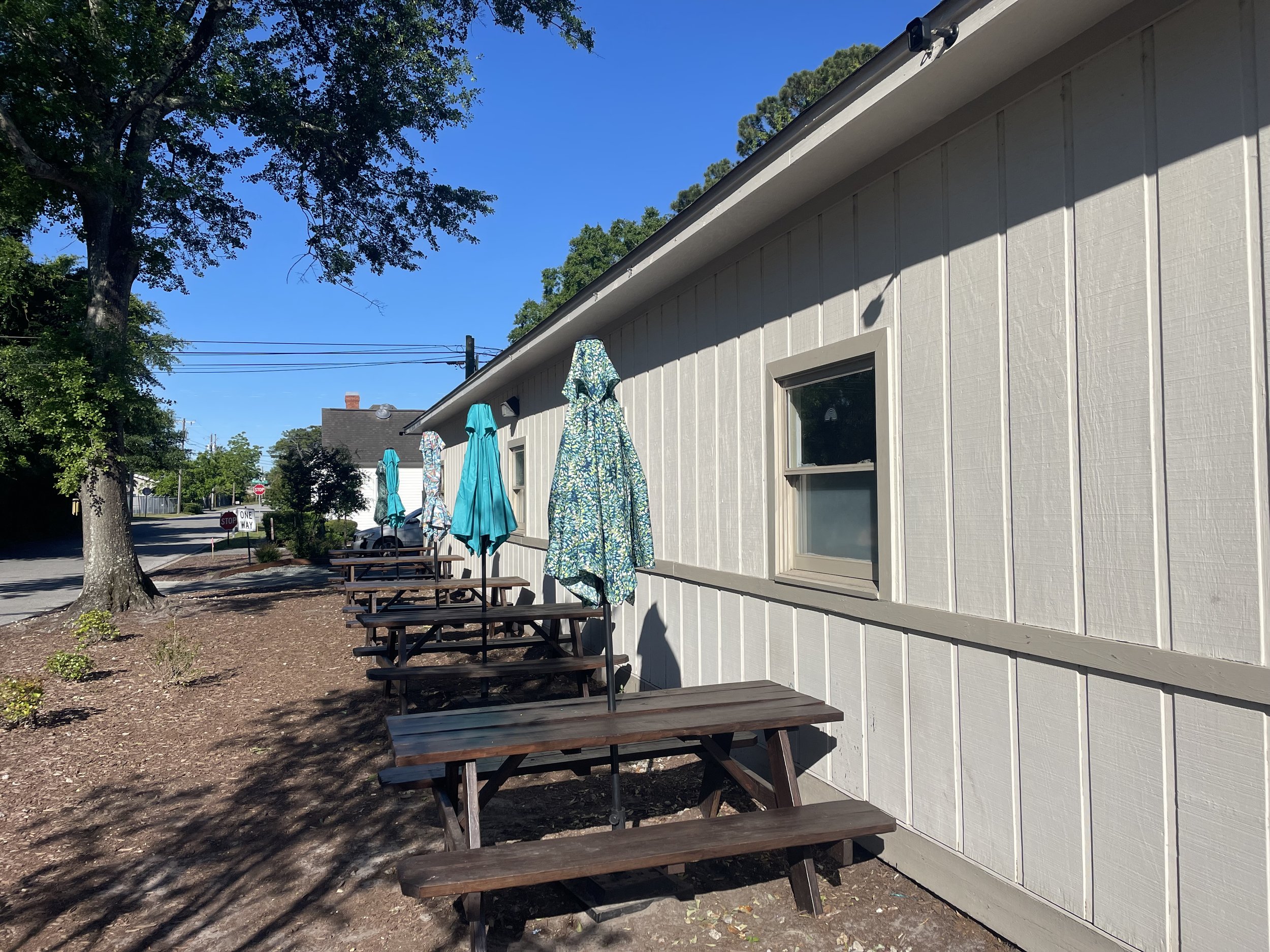Lower & Upper Elementary
Lower 6-9 years, Upper 9-12 years
We prepare students for life by offering an exciting social and academic program with a holistic approach of “educating the whole child.” The curriculum caters to each student’s academic, physical, emotional, spiritual, and moral development. Students are given the opportunity to learn with freedom and opportunities to develop self-discipline and academic choices. The classroom environment is prepared to support exploration, research, accountability, imagination, repetition, precision, and communication. In the elementary age, children learn cultural and academic concepts through stories, research, and purposeful work. Storytelling is a loved concept in this age group. Careful work, lessons, and projects are experienced in the classroom during the work cycle and the afternoon time. Lessons are also taken outside of the classroom through the Montessori “going out” curriculum whereby students participate in outdoor learning, community work, and multiple outings during the month.
Montessori Three Hour Workcycle
Our three hour workcycle is a time to focus on group and individual lessons, each child has a work plan that is a balance of teacher chosen and student chosen work and interests. Children use hands on materials for concrete concepts, less materials as children move into abstract concepts, research tools, artistic materials, and their work journals to complete work. Children also have their afternoon work time that focuses on various subject areas. As the lower elementary student becomes an upper elementary student, the workplan is more specific in nature.
Field Trips and “Going Out”
We have designated field trips and “going out” experiences during the month. We use our school van and parent volunteers for transportation. Our field trips start local and move further out with travel time as we explore Wilmington and North Carolina. Field trips are planned by both students and teachers, relating to the interests and area of study. The field trip fees go towards spending money on field trips, sharing money for community projects, and saving for our end of year class trip. Each year the students plan and prepare for our Elementary Adventure week which includes their end of year experience week (lower elementary) and trip to the mountains of North Carolina (upper elementary).
Going out experiences are with a few select children that are interested in a specific subject or skill and go out in the community during work cycle. This may look like a food shopping trip, an local interview, a run to the pet store for stock supplies - students are part of their community and find interest in responsibilities and tasks of interest.
Language Arts
Students work on a variety of skills such as speaking, writing, debating, reading, listening, and idea creation, which will be learned, practiced, and expressed throughout the day and across subjects through an assortment of media and literature. Students work on their writing, speaking, and listening through reports, researching, journaling, and other assignments. They work on handwriting, grammar, and cursive writing. Students have quiet reading or a class read aloud daily to promote a love for reading!
Writing
Students will have a writing and technique work during their work cycle where they study various writing styles, vocabulary, spelling words, and grammar work more intensely. Teachers can utilize the Handwriting Without Tears and Keyboarding Without Tears program to best serve our budding writers and authors. As students move into the upper elementary classroom, they begin to use typing skills to write in addition to print and cursive.
Social Studies, History, Current Events
Students investigate prehistory and the ways in which people met, and continue to meet, common needs and expressed themselves throughout time. Students explore ancient civilizations like China and Egypt, amongst others, early exploration, and then onto world history through modern times. Students learn of important times of history, historical events, timelines, famous speeches, current events and discussion & debate. We work on discussing current events in our modern timeline, economics, and government. We teach hard history and do not shy away from real history that is developmentally appropriate to teach in class. The Great Lessons are explored during this time as well (this start of time, coming of life, coming of humans, development of writing, and development of numbers) which is specific to the Montessori elementary experiance.
Geography, Cultural, and Passport Presentations
Students will study the seven continents during the year -- studying human needs throughout cultures. Cultural and world religions will also be studied in the classrooms. Each child will create a report on a specific city, state, or country (depending on age level) which is a research project that each child will work on and present on in class. The Passport Presentation is a loved tradition at Peace Rose!
Mathematics
In our math area we have materials to help guide with the operations of whole numbers (e.g. addition, subtraction, multiplication, division), the decimal system and place value (unit, ten, hundred, thousand all the way to the hundred millions and infinity street...), fractions, measurement, geometry, algebra, skip counting, time and money, and squaring and cubing material. Advanced Montessori works will assist the child with multiples/factors and divisibility, decimals, percents, ratios, proportions, and more. As the elementary Montessori student advances in math, the student will move from the concrete to the abstract, using less materials and more paper and mental math. Upper elementary students move through pre-algebra and algebra work to prepare for the Secondary Program.
Science
Biology, geology, zoology, chemistry, and physics are some areas of study in student coursework. Students learn the scientific method, earth science, matter, energy, weather, farm and creek life, and perform experiments. The creek trips at our school creek (in which we participate in Cape Fear River Watch’s Creek Watchers Program) and the school farm enhances creek and ecology studies. The 2024-2025 school year is our second year with a Peace Rose Montessori Science Olympiad Team for our Upper Elementary Students.
PE & Health
This class works with the children on physical fitness goals, group games, stamina, and sportsmanship. Students also learn about self care, hygiene, and developmentally appropriate sexual education.
Yoga & Meditation
The students will learn techniques and play games to manage physical, emotional, and mental well being. Our goal is to help students develop their emotional intelligence, conflict resolution skills, and Montessori virtues with physical and mental input and output. Each classroom has a peace area with various input and output measures.
Music & Theatre
During a weekly music class, students come together to create beautiful vocal range with classic musical pieces. Cultural music, music theory, and musical instrumentation are also part of the curriculum. The students will share their work during the Winter and Spring Showcases for our community. Our budding theater program embarked during the 2022-2023 school year in which we offered improv classes, put on Maria Montessori the Musical, and an original Shakespeare in the Park production. Each year students (lower and upper) will put on a play or musical and our upper el students will put on Shakespeare in the Park play. We connect with local artists, theatre groups, technicians, and organizations locally to help support our theatre program.
Art Education
Art appreciation, history, use of tools and exploration are present in many classroom lessons. Students learn to create from their personal best effort and skill, critiquing work and challenging themselves to try new artistic methods. Charcoal, pencil, paint, clay, photography, artists, periods, and analysis are some areas of study.
Spanish
Students are at varying levels of learning the Spanish language. Spanish is practical and meaningful at this level -- vocabulary, identification, and culture most importantly. Listening, speaking, reading, and writing will all be practiced at varying levels. Spanish class is taught mostly in Spanish to immerse students in the language and to begin thinking in Spanish.
Technology
Research, community publications, science studies and labs, and technological awareness/use are present in class mostly at the upper elementary levels. Students document work through paper, journals, discussions, and presentations. Technology is used in class for educational uses -- use of computers, typing skills, and occasional video clips. Technology skills and internet safety measures will be taught.
Homework
Given the nature of our day with ample time to work, we do not typically send homework to the homes of our students. The occasions this may occur may include 1- if the student wants to work on a project at home, 2- if they missed school due to sickness or vacation, 3- they need to finish their work plan and may not have used their class time in a productive manner and need more time. Parents can track their students’ progress on our internal Transparent Classroom program.
Assessments and End-of-Year Testing
In class, children will be assessed formally and informally during the school year in class and the 6th graders will start to develop the understanding of grades and due dates. Students are held accountable by their work plans, teacher lessons, personal research, and work completion. Students meet with the teacher each week to discuss their work and studies.
If a teacher observed behaviors or needs of a student, an assessment may be requested (this may include but is not limited to PT, OT, ADHD, Autism, Dyslexia, et cetera). We need full parent cooperation to procceed (with requested assessments). As professionals, we observe and serve our student community. We offer in house services and tutoring for students who may need this extra support.
End of year testing is required for 3rd grade and 6th grade through our non-public education licensure. Students 3rd-8th grade test at the end of year. This time of year is a great insight into the students' enjoyment and practice to test, as well as to see their Montessori work in action at a national testing level.















































